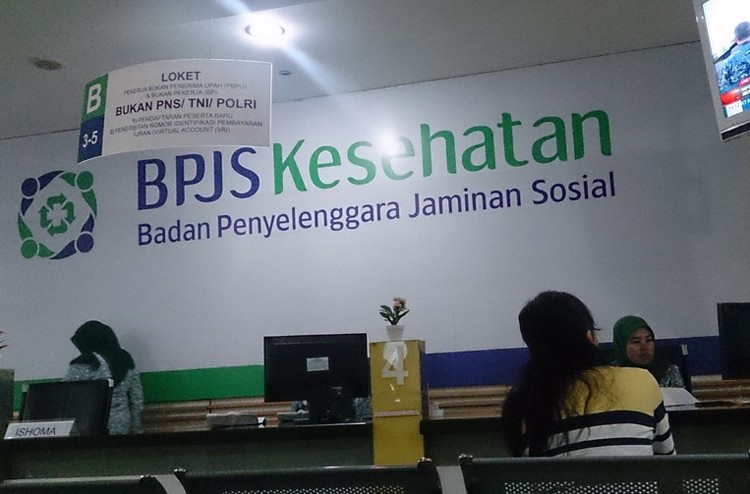Popular Reads
Top Results
Can't find what you're looking for?
View all search resultsPopular Reads
Top Results
Can't find what you're looking for?
View all search resultsBPJS drops coverage for sex abuse victims
The decision is stipulated under Presidential Regulation (Perpres) No. 82/2018 on the JKN, which was issued by President Joko “Jokowi” Widodo in September but only came to light in recent weeks.
Change text size
Gift Premium Articles
to Anyone
T
he government has decided to stop covering health services for sexual assault victims in the national health insurance (JKN) program, in a move activists said might worsen the stigma against rape victims.
The decision is stipulated under Presidential Regulation (Perpres) No. 82/2018 on the JKN, which was issued by President Joko “Jokowi” Widodo in September but only came to light in recent weeks.
Health care and Social Security Agency (BPJS Kesehatan) spokesperson Iqbal Anas Ma’ruf said the regulation was pivotal to “making everything more efficient” by ensuring that the utilization of BPJS funds would not overlap with funds from other institutions.
“An article in the National Social Security Law stipulates that once a scheme is covered by one program, then the same scheme cannot be covered by other program,” Iqbal told The Jakarta Post on Friday.
Therefore, he added, the JKN could not cover health services for sexual abuse victims as they fell under the responsibility of the Witness and Victim Protection Agency (LPSK).
“The LPSK Law stipulates that the LPSK will cover victims of [sexual] abuse.”
Health Ministry family health director, Eni Gustina, said the move was inevitable because the JKN itself did not deem sexual violence a priority.
“The national health insurance program focuses more on treating diseases,” she said.
The LPSK conceded that while it did not mind providing assistance to sexual abuse victims, it was ill-equipped to handle them and give them the various treatment they needed.
“There is only one LPSK center and it is here in Jakarta. It is difficult for us to cover every victim across Indonesia. We also don’t have the manpower,” said LPSK deputy head Hasto Admodjo Suroyo. “Therefore, we hope that the BPJS can initiate a discussion with us on this matter in the near future.”
Since 2016, the LPSK has covered 210 sexual assault cases, 62 of which were in 2016, 63 in 2017 and 85 in 2018.
The National Commission on Violence Against Women (Komnas Perempuan) recorded 3,982 cases of sexual violence, including 619 rape cases, in 2017.
But these numbers may only be the tip of the iceberg as a survey conducted in 2016 by support group for victims of sexual violence Lentera Sintas Indonesia and feminist website Magdalene.co revealed that more than 90 percent of rape cases in Indonesia went unreported.
“That is another problem we are dealing with: the LPSK can only provide aid to those who report their abuse,” said LPSK expert staff member Susilaningtias.
She also feared that the agency would not have the necessary funds to provide treatment for sexual abuse victims because the government had cut its budget from Rp 80 billion (US$5.5 million) in 2018 to Rp 65 billion
this year.
Women rights groups have criticized the new regulation, saying that the decision did not side with victims.
“The LPSK is not a health institution. It can only help those who report to it and only after the agency decides whether they are eligible for LPSK assistance,” said Women’s Health Foundation chairman Zumrotin Susilo. “But in most cases, women who experience sexual assault do not go to the LPSK; they go to community health centers [Puskesmas].”
“So, it is the BPJS that must help women who have been sexually assaulted [through the JKN scheme].”
The new regulation, a revision of Perpres 12/2013 on the same issue, also removed health services for the victims of traffic accidents, terrorism, abuse and human trafficking, among others, from the JKN’s coverage.
The JKN has gained praise from the international community, but at home it has encountered many problems, including a Rp 10.99 trillion deficit in 2018.
The government hopes to have at least 95 percent of Indonesians covered by the JKN by 2019.
However, as of Jan. 1, coverage was at 81.75 percent.










